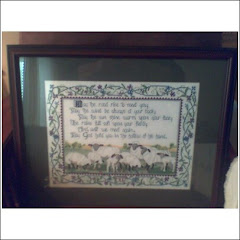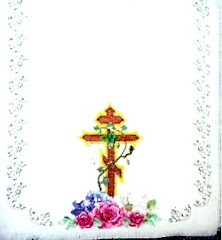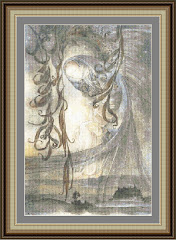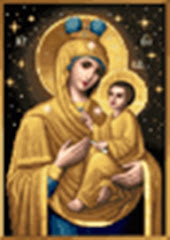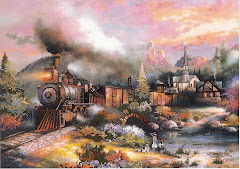My daughter, who is a writer (her fiction is as yet unpublished, although she's a contributing editor for a number of special-interest publications), recently penned a bizarre short-short that was published on the internet -- since I don't know if internet publishing counts, for the time being I'll say she's unpublished, though after having read this mini-horror, I can't think why. Baldly put, it's about a two-year-old who discovers his mother's murdered body, and the whole 700-word tale is told from the toddler's point of view. She says she got the idea from a combination of wondering how her son would react if they were home alone and she were hurt and unresponsive, and the way I brought her up, with tales -- all of them true -- about kids who were struck by lightning while watching TV, or were snatched off the streets while walking to or from school alone.
Her tale is unfortunately not entirely fiction, either, since a classmate of mine was murdered while home alone with her four-month-old. Sometimes I wonder about that child, if he has any memory at all of his mother, if he grew up knowing that something big was missing from his life. Frankly, I can't conceive that he doesn't remember something, because -- I remember something. Every time I fell seriously in love, it was with a brown-eyed man, and my father had brown eyes.
People always think that when you lose a parent at a very young age, it's not such a big deal, because how much do you remember, anyway? And it's true that you don't remember much, if anything at all; but I can tell you from experience, you know that something is gone that can never be recovered, and it colors your whole life. For one thing, death doesn't hold the same horror that it does for others, because hey, you've lived with it all your life, like that uncle who keeps popping up at family parties and offering you candy, and you wish he would just go away, like to another galaxy. But he's there, and you learn to deal with him early on.
So -- what do you call someone who's been dead almost your whole life, but without whom you wouldn't exist? I don't know. I grew up calling him My Father. These days I call him Amos, if I have occasion to refer to him, since everybody in my family knows who I mean by that, since who in the heck names their kid Amos, anyway?! (And the worst part of that is that that was his father's name, so he grew up being called Junior. Junior! "Jun-YER!" Gosh, I hope his mother never called him home like that.)
We never talked about him, if my mother could help it. I used to ask all the normal questions a kid would who knew she was adopted, and my mother would always skate away gracefully. Finally, when I was ten and asked yet another question -- I think it was about their marriage -- she snapped, "We were both young and stupid." Oh-kay,drop that one real fast. As an adult, I finally learned that the marriage was not happy, and he walked out on her when I was 18 months old. Sometimes, knowing my mother and her family, I don't blame him.
What strikes me as bizarre now is that all the years I was a Catholic, 30, to be exact, it never once occurred to me to pray for his soul. I mean, Catholics are always praying for dead people. We prayed for my great-grandmother's soul, for crying out loud. But it never once occurred to me to pray for him, not till I was in my 40s and already Orthodox and I had a dream about him: I dreamed he was wandering in a trackless, featureless desert landscape, looking terrified, moaning soundlessly. Not hell, but certainly not heaven; and not too long after that, I came across a description of Tartarus, a place in eternity occupied by souls that never knew God. That would be my father, who was only nominally Christian. These days, I pray for his soul.
Thanks for listening.
Friday, May 05, 2006
Subscribe to:
Comments (Atom)
